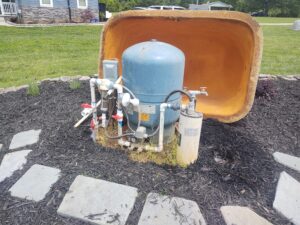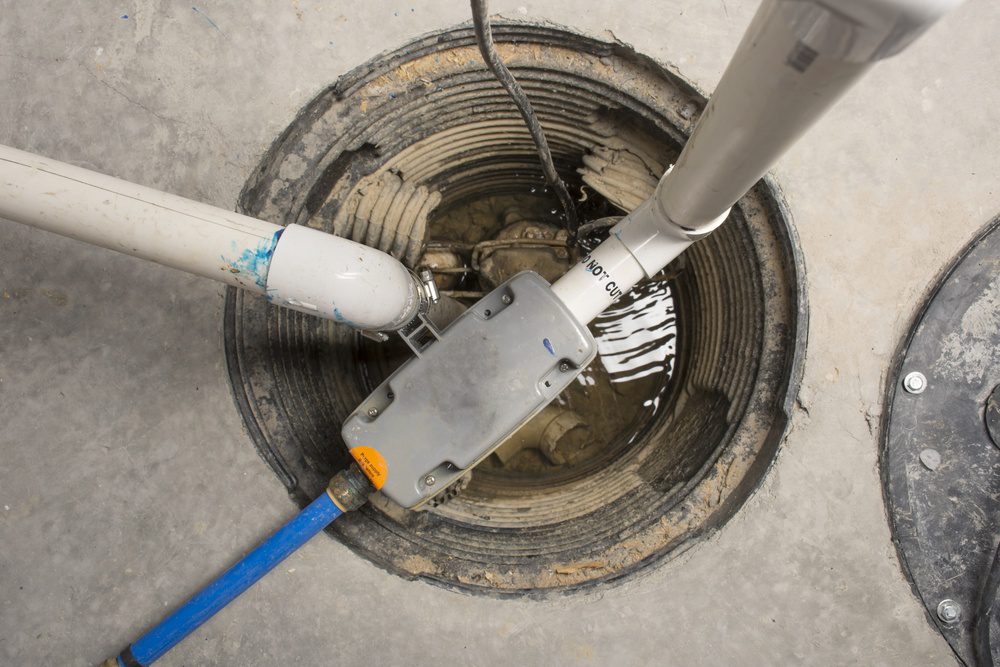High-grade Water Filtration Systems: Guaranteeing Clean and Pure Drinking Water
High-grade Water Filtration Systems: Guaranteeing Clean and Pure Drinking Water
Blog Article
Recognizing the Secret Components of Effective Water Purification Systems

Relevance of Water Filtration Solution
Water purification systems play a crucial function in ensuring accessibility to safe and clean drinking water by efficiently eliminating impurities and pollutants. These systems are crucial in attending to the growing worries over water top quality and the potential health threats connected with taking in polluted water. By making use of various filtration systems such as reverse osmosis, turned on carbon, and UV sterilization, water purification systems can efficiently get rid of dangerous materials like microorganisms, infections, heavy metals, and chemicals from the supply of water.
Furthermore, water purification systems assist to improve the preference and odor of water by getting rid of chlorine, debris, and other toxins that can influence its high quality. Water Filtration Systems. This enhancement in water high quality not only makes it a lot more palatable yet also encourages individuals to drink a sufficient quantity of water daily, promoting better hydration and total health and wellness
Kinds Of Purification Elements

Physical filters are made to physically strain out pollutants from the water. These filters can be made of materials like ceramic, carbon, or also sand, and they work by capturing bits larger than the filter's pores as water passes via.
Chemical filters use various chemical procedures to remove contaminants from the water. Examples include turned on carbon filters, which adsorb impurities, and reverse osmosis membrane layers, which utilize stress to different contaminants from the water.
Biological filters use living organisms like algae or germs to break down raw material and contaminants in the water. These filters are commonly used in wastewater treatment plants or natural water filtration systems.
Understanding the different types of filtration elements is important for picking one of the most appropriate water purification system for particular purification requirements.
Feature of Sediment Filters
Debris filters play an essential duty in water purification systems by successfully recording strong particles suspended in the water. These filters are generally the first line of defense in a purification system, removing larger particles such as sand, silt, dust, and corrosion prior to the water moves through finer purification phases. By capturing these debris, the filters stop them from reaching downstream parts, thus extending the life expectancy and efficiency of the entire system.
The function of sediment filters is important in keeping water high quality and securing sensitive tools from damage brought on by link debris. Additionally, by removing noticeable particles, debris filters improve the clarity and taste of the water. Frequently cleaning or replacing debris filters is vital to make sure ideal performance. Neglecting this upkeep can result in blocking, lowered water flow, and compromised purification performance. On the whole, debris filters are vital parts that add substantially to the efficiency of water purification systems.
Function of Turned On Carbon Filters
Playing an essential duty in water purification systems, turned click resources on carbon filters are critical in eliminating impurities and contaminants from the water supply. As water passes with the filter, the activated carbon holds and attracts onto the impurities, ensuring that the water that comes out on the various other side is cleaner and much safer for usage.
Turned on carbon filters are extremely efficient at boosting the preference and odor of water by lowering chemicals that can impact its high quality. Due to their convenience and integrity, activated carbon filters are a vital component in guaranteeing that water is purified to the highest possible criteria before getting to consumers.
Understanding Reverse Osmosis Systems
Reverse osmosis systems are innovative water purification systems that employ an innovative procedure to get rid of contaminants and pollutants from alcohol consumption water. These systems work by using stress to the water, forcing it through a semi-permeable membrane layer. This membrane layer works as a barrier, allowing only distilled water molecules to go through, while blocking larger particles such as minerals, chemicals, and other impurities. Therefore, the water that appears on the various other side is considerably cleaner and more secure for usage.
One trick advantage of reverse osmosis systems is their capacity to get rid of a large range of pollutants, consisting of heavy steels, dissolved infections, bacteria, and solids. This makes them extremely efficient in enhancing the general top quality and safety and security of drinking water. In addition, reverse osmosis systems are relatively low-maintenance and can be set up under the sink or in a central purification system, providing practical accessibility to tidy water throughout the family. anchor Generally, understanding exactly how reverse osmosis systems work can assist people make educated decisions concerning their water filtering requirements.
Conclusion
In conclusion, efficient water filtration systems are vital for making sure clean and safe alcohol consumption water. By comprehending the feature and duty of each element, people can make enlightened choices when selecting a water filtering system.
Water purification systems play an important role in making sure access to tidy and safe alcohol consumption water by effectively eliminating pollutants and impurities. By using different filtering mechanisms such as reverse osmosis, activated carbon, and UV sanitation, water purification systems can effectively remove dangerous substances like microorganisms, viruses, heavy metals, and chemicals from the water supply.
Debris filters play a critical role in water purification systems by properly capturing solid bits suspended in the water (Water Treatment).Playing a crucial function in water purification systems, triggered carbon filters are important in removing contaminations and impurities from the water supply.Reverse osmosis systems are innovative water filtering systems that employ a sophisticated process to eliminate pollutants and pollutants from alcohol consumption water
Report this page